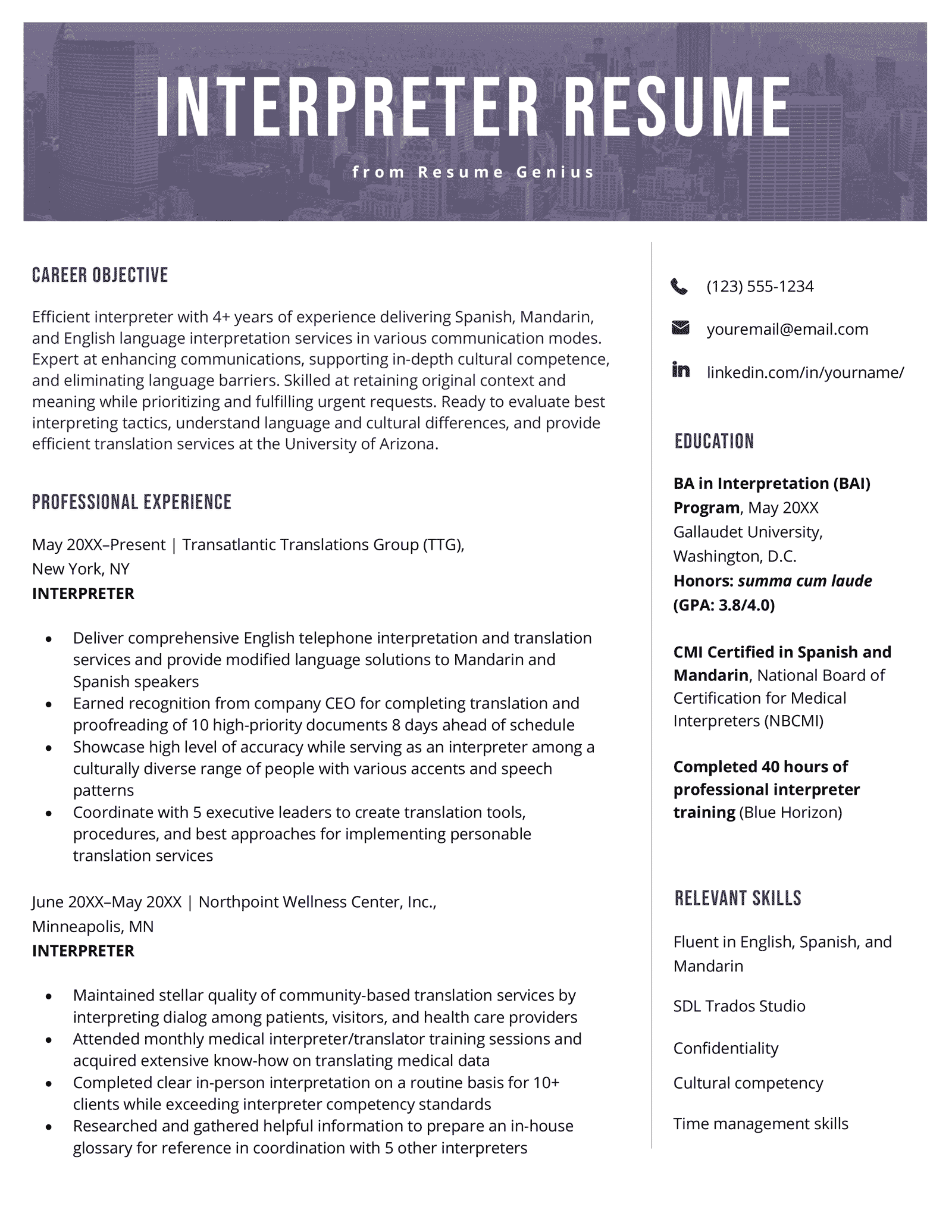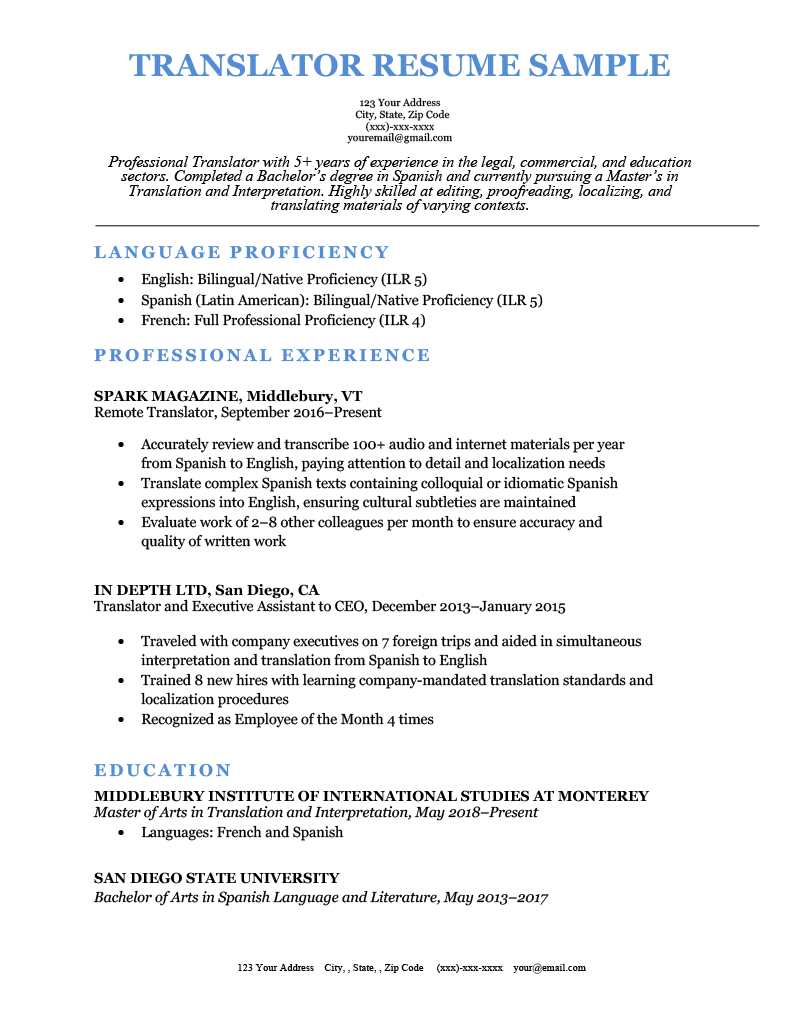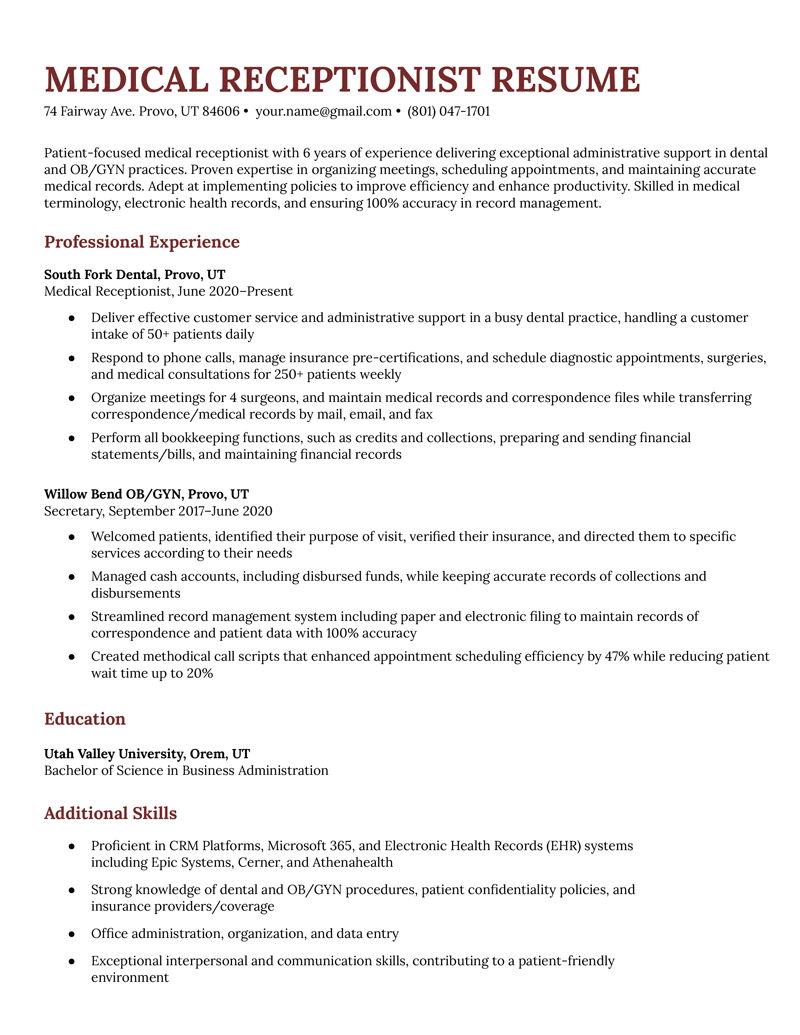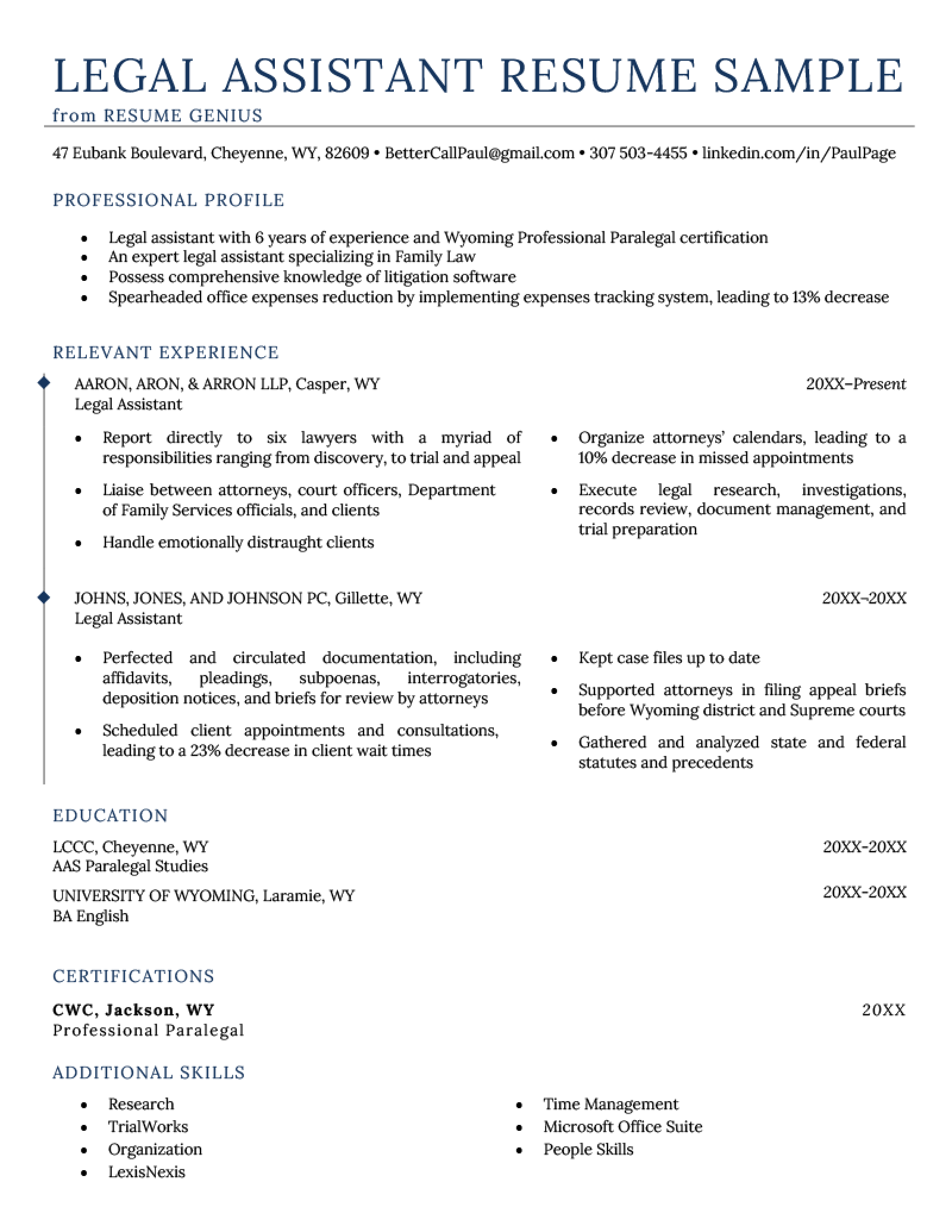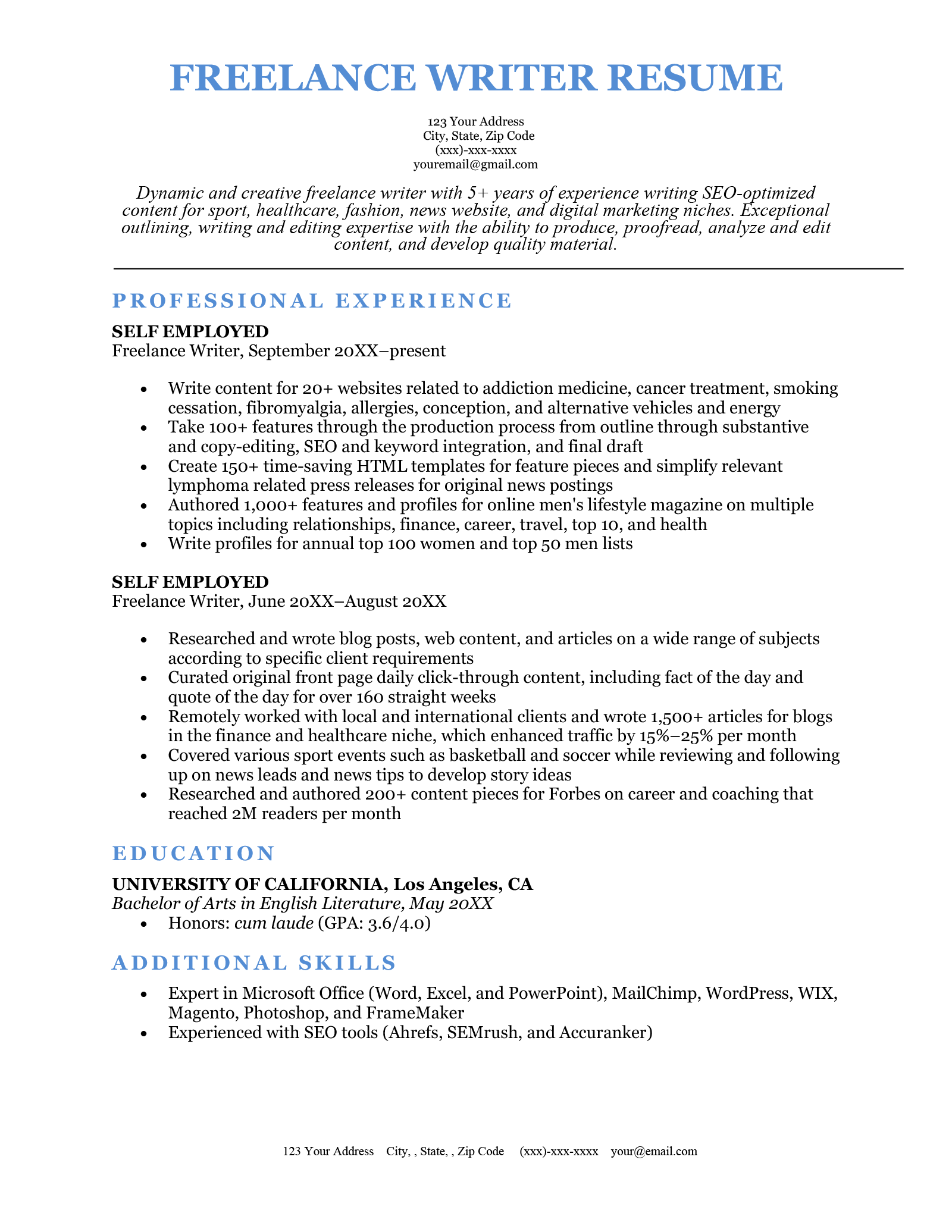Interpreter Resume Template (Text Format)
FIRST AND LAST NAME
Email: your.email@email.com
Phone: (123) 456-7891
Address: Street, City, State
LinkedIn: linkedin.com/in/yourprofile
Career Objective
Efficient interpreter with 4+ years of experience delivering Spanish, Mandarin, and English language interpretation services in various communication modes. Expert at enhancing communications, supporting in-depth cultural competence, and eliminating language barriers. Skilled at retaining original context and meaning while prioritizing and fulfilling urgent requests. Ready to evaluate best interpreting tactics, understand language and cultural differences, and provide efficient translation services at the University of Arizona.
Professional Experience
Transatlantic Translations Group (TTG), New York, NY
Interpreter, January 2020–Present
- Deliver comprehensive English telephone interpretation and translation services and provide modified language solutions to Mandarin and Spanish speakers
- Earned recognition from company CEO for completing translation and proofreading of 10 high-priority documents 8 days ahead of schedule
- Showcase high level of accuracy while serving as an interpreter among a culturally diverse range of people with various accents and speech patterns
- Coordinate with 5 executive leaders to create translation tools, procedures, and best approaches for implementing personable translation services
Northpoint Health & Wellness Center, Inc., Minneapolis, MN
Interpreter, June 2018–January 2020
- Maintained stellar quality of community-based translation services by interpreting dialog among patients, visitors, and health care providers
- Attended monthly medical interpreter/translator training sessions and acquired extensive know-how on translating medical data
- Completed clear in-person interpretation on a routine basis for 10+ clients while exceeding interpreter competency standards
- Researched and gathered helpful information to prepare an in-house glossary for reference in coordination with 5 other interpreters
Education
Gallaudet University, Washington, D.C.
BA in Interpretation (BAI) Program, May 2018
Honors: summa cum laude (GPA: 3.8/4.0)
National Board of Certification for Medical Interpreters (NBCMI)
CMI Certified in Spanish and Mandarin
Completed 40 hours of professional interpreter training (Blue Horizon)
Relevant Skills
- Fluent in English, Spanish, and Mandarin
- SDL Trados Studio
- Confidentiality
- Cultural competency
- Time management skills


